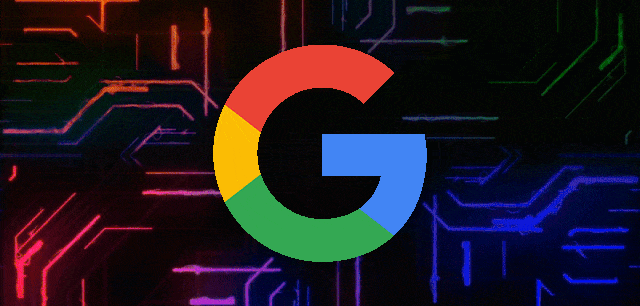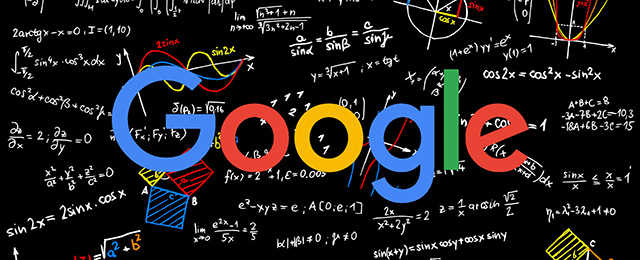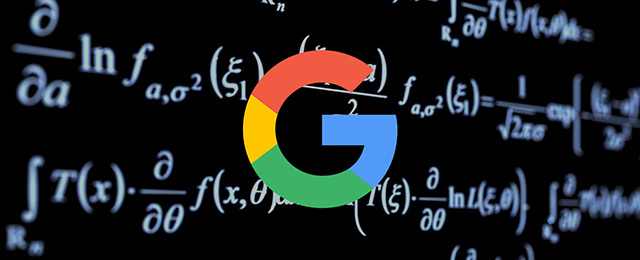Google July 2021 Core Update Is Live – What We Are Seeing

Google announced that on July 1, 2021 it began to roll out the July 2021 core update. We knew we would soon see another core update, and Google delivered this one a month after the June 2021 core update – which launched on June 2, 2021. This one seems to have started out pretty strong and many are seeing big changes with this update.
Some think what we saw on June 30th through July 1st may be related to the release of the core update. But if I would ask Google, they would say no, because this core update just started yesterday – not two days ago.
This update does seem to have kicked off pretty quickly with a lot of chatter in the past 12 hours or so and the tools are showing changes. More of what we are seeing in the what’t were seeing section of this story. I should note, the June core update was very slow to start out, unlike this July core update.
Danny Sullivan under the Search Liaison Twitter account posted “the July 2021 Core Update, previously announced, is now rolling out.” Danny added that “these typically take 1-2 weeks to finish.” Normally they take a full two weeks but the June core update ran on June 2nd and ended on June 12th – a 10 day period.
Here is the tweet announcing this rollout:
The July 2021 Core Update, previously announced, is now rolling out:https://t.co/6Xs77WDsur
These typically take 1-2 weeks to finish. Our guidance about such updates is here:https://t.co/e5ZQUA3RC6
Here’s more on how we improve search through updates:https://t.co/IBmInwGOiX
— Google SearchLiaison (@searchliaison) July 1, 2021
This core update, like the other core updates, is a global update impacting all languages across all regions.
Two Part Update: June and July Core Updates
As a reminder, Google said it released a core update in June on June 2nd through June 12th and planned to push out another core update next month – called the July 2021 core update, which happened on July 1st. Why didn’t Google release both the same time? Google said not all of the pieces are ready for that, so they pushed out what is ready in June with the June 2021 core update and then released this July core update as the last parts are now ready to be released for the July 2021 core update.
What is not ready? I asked Google and Google would not say. Google did say that if your site rankings changes with the June 2021 core update, you may see a reversal or shift (or not) with the July 2021 core update. I wonder how many sites will see changes that saw changes with the June update?
Here is what Google said last month on this topic:
Of course, any core update can produce drops or gains for some content. Because of the two-part nature of this release, it’s possible a very small slice of content might see changes in June that reverse in July….
— Google SearchLiaison (@searchliaison) June 2, 2021
Many Overlapping Updates
Even if you exclude the unconfirmed updates, including the June 30th update, the confirmed updates are many.
I had this cute graphic made of the recent updates, I didn’t include all the unconfirmed updates in the graphic or the predator update since it was super specific (click to enlarge it):
The previous core update was a month ago on June 2nd named the June 2021 core update. The one before that was 6 months before the June update, on December 3, 2020 named the December 2020 core update. Before that was 7 month gap where on May 4, 2020, the May 2020 core update. The one prior to that was on January 13, 2020, the January 2020 core update and the one before that was on September 24, 2019, the September 2019 core update. Oh, before that was on June 3, 2019, the June 2019 core update and I can go on and on.
Improve After a Core Update
Did you get hit by this update, Google did give us advice on core updates and how to improve your site overall after seeing a negative outcome after a core update. Google reiterated that in this tweet:
As a reminder, nothing in a core update is site-specific. Those who seek to perform well with search generally, including with core updates, should look to our guidance here: https://t.co/Mk9xsiTw1B
— Google SearchLiaison (@searchliaison) June 2, 2021
Google also posted a new blog post on how and why Google does these updates. Google wrote “because there are so many incremental updates, it’s not useful for us to share details about all of them. However, we try to do so when we feel there is actionable information that site owners, content producers or others might consider applying, as was the case with both of the updates mentioned above.”
Just as computers & smartphones are regularly updated, the same thing happens with Google Search. In fact, Google Search is updated thousands of times per year with changes meant to improve the experience and the quality of results. More about the process: https://t.co/3EJAvaondz
— Google SearchLiaison (@searchliaison) June 2, 2021
SEO Chatter: What We Are Seeing
Keep in mind, there is chatter from the June 30th through July 1st update that may be unrelated to this update. But there is renewed chatter from the past 20 hours or so at both WebmasterWorld and Black Hat World.
I see interesting fluctuations / changes in my niche in last few hours as well. Let me get my ice cold mineral water and sit down and watch.
My client’s dental website got hit by this update!
Lost positions on a lot of keywords. But like previous times, hoping to recover them back as the initial dust settles down. Too early to comment right now.
Agreed, I’ve seen this type of thing before. I think it was the May 2020 update that really nuked many of my sites. But after a few weeks when the dust settled down, the algorithm seemed to be tweaked to where many of my sites recovered.
Starting to see the movements today – some big ups, some big downs across the whole world, not just EN.
I noticed that sites that had a boost from the June update got even more boost from this update. It is like amplifying the effect from the June update. This further confirms as one site that I had been tracking was tanked a little further after being hit from the June update.
Again, too early to say as we need 1-2 weeks for it to fully roll out. And I must point out that this is from my observation and humble opinion.
But from my experience, as long as you feel the positive effects or benefits from the initial start of the update, you’re very likely to have a positive outcome after the roll out is fully done… Because it just means your site has fulfilled whatever criteria the algorithm update is looking for.
I was hit during June core update with -20%. At 11:00 AM PST today my traffic is back to pre-june level. I hope whatever it is, my recovery sticks.
I am also seeing reversion of the June update insanity for the past ~10 hours, although it is too early to tell if this is a trend or just a blip before things get even worse.
June Core Update – 20% . I checked the serps this morning. Looks like another -10 -20%. Thought, surely they rolled out the July Core update and it’s true.
I saw a recovery from a previous core update in June’s update. And I’m seeing another boost in rankings now with July core update.
So far so good. Big recovery from the first part of this Core Update.
Let’s see if it’s sticks…
I also asked on Twitter what people are seeing and you can see the thread of responses on Twitter.
Search Tracking Tools:
Of the tools that are updated for this morning, they are all showing pretty big changes. I’ll update them as the day goes on. Here are what the tracking tools that have been updated this morning are showing so far:
Forum discussion at Twitter, WebmasterWorld & Black Hat World.
AI
Exploring the Evolution of Language Translation: A Comparative Analysis of AI Chatbots and Google Translate

According to an article on PCMag, while Google Translate makes translating sentences into over 100 languages easy, regular users acknowledge that there’s still room for improvement.
In theory, large language models (LLMs) such as ChatGPT are expected to bring about a new era in language translation. These models consume vast amounts of text-based training data and real-time feedback from users worldwide, enabling them to quickly learn to generate coherent, human-like sentences in a wide range of languages.
However, despite the anticipation that ChatGPT would revolutionize translation, previous experiences have shown that such expectations are often inaccurate, posing challenges for translation accuracy. To put these claims to the test, PCMag conducted a blind test, asking fluent speakers of eight non-English languages to evaluate the translation results from various AI services.
The test compared ChatGPT (both the free and paid versions) to Google Translate, as well as to other competing chatbots such as Microsoft Copilot and Google Gemini. The evaluation involved comparing the translation quality for two test paragraphs across different languages, including Polish, French, Korean, Spanish, Arabic, Tagalog, and Amharic.
In the first test conducted in June 2023, participants consistently favored AI chatbots over Google Translate. ChatGPT, Google Bard (now Gemini), and Microsoft Bing outperformed Google Translate, with ChatGPT receiving the highest praise. ChatGPT demonstrated superior performance in converting colloquialisms, while Google Translate often provided literal translations that lacked cultural nuance.
For instance, ChatGPT accurately translated colloquial expressions like “blow off steam,” whereas Google Translate produced more literal translations that failed to resonate across cultures. Participants appreciated ChatGPT’s ability to maintain consistent levels of formality and its consideration of gender options in translations.
The success of AI chatbots like ChatGPT can be attributed to reinforcement learning with human feedback (RLHF), which allows these models to learn from human preferences and produce culturally appropriate translations, particularly for non-native speakers. However, it’s essential to note that while AI chatbots outperformed Google Translate, they still had limitations and occasional inaccuracies.
In a subsequent test, PCMag evaluated different versions of ChatGPT, including the free and paid versions, as well as language-specific AI agents from OpenAI’s GPTStore. The paid version of ChatGPT, known as ChatGPT Plus, consistently delivered the best translations across various languages. However, Google Translate also showed improvement, performing surprisingly well compared to previous tests.
Overall, while ChatGPT Plus emerged as the preferred choice for translation, Google Translate demonstrated notable improvement, challenging the notion that AI chatbots are always superior to traditional translation tools.
Source: https://www.pcmag.com/articles/google-translate-vs-chatgpt-which-is-the-best-language-translator
Google Implements Stricter Guidelines for Mass Email Senders to Gmail Users

Beginning in April, Gmail senders bombarding users with unwanted mass emails will encounter a surge in message rejections unless they comply with the freshly minted Gmail email sender protocols, Google cautions.
Fresh Guidelines for Dispatching Mass Emails to Gmail Inboxes In an elucidative piece featured on Forbes, it was highlighted that novel regulations are being ushered in to shield Gmail users from the deluge of unsolicited mass emails. Initially, there were reports surfacing about certain marketers receiving error notifications pertaining to messages dispatched to Gmail accounts. Nonetheless, a Google representative clarified that these specific errors, denoted as 550-5.7.56, weren’t novel but rather stemmed from existing authentication prerequisites.
Moreover, Google has verified that commencing from April, they will initiate “the rejection of a portion of non-compliant email traffic, progressively escalating the rejection rate over time.” Google elaborates that, for instance, if 75% of the traffic adheres to the new email sender authentication criteria, then a portion of the remaining non-conforming 25% will face rejection. The exact proportion remains undisclosed. Google does assert that the implementation of the new regulations will be executed in a “step-by-step fashion.”
This cautious and methodical strategy seems to have already kicked off, with transient errors affecting a “fraction of their non-compliant email traffic” coming into play this month. Additionally, Google stipulates that bulk senders will be granted until June 1 to integrate “one-click unsubscribe” in all commercial or promotional correspondence.
Exclusively Personal Gmail Accounts Subject to Rejection These alterations exclusively affect bulk emails dispatched to personal Gmail accounts. Entities sending out mass emails, specifically those transmitting a minimum of 5,000 messages daily to Gmail accounts, will be mandated to authenticate outgoing emails and “refrain from dispatching unsolicited emails.” The 5,000 message threshold is tabulated based on emails transmitted from the same principal domain, irrespective of the employment of subdomains. Once the threshold is met, the domain is categorized as a permanent bulk sender.
These guidelines do not extend to communications directed at Google Workspace accounts, although all senders, including those utilizing Google Workspace, are required to adhere to the updated criteria.
Augmented Security and Enhanced Oversight for Gmail Users A Google spokesperson emphasized that these requisites are being rolled out to “fortify sender-side security and augment user control over inbox contents even further.” For the recipient, this translates to heightened trust in the authenticity of the email sender, thus mitigating the risk of falling prey to phishing attempts, a tactic frequently exploited by malevolent entities capitalizing on authentication vulnerabilities. “If anything,” the spokesperson concludes, “meeting these stipulations should facilitate senders in reaching their intended recipients more efficiently, with reduced risks of spoofing and hijacking by malicious actors.”
Google’s Next-Gen AI Chatbot, Gemini, Faces Delays: What to Expect When It Finally Launches

In an unexpected turn of events, Google has chosen to postpone the much-anticipated debut of its revolutionary generative AI model, Gemini. Initially poised to make waves this week, the unveiling has now been rescheduled for early next year, specifically in January.
Gemini is set to redefine the landscape of conversational AI, representing Google’s most potent endeavor in this domain to date. Positioned as a multimodal AI chatbot, Gemini boasts the capability to process diverse data types. This includes a unique proficiency in comprehending and generating text, images, and various content formats, even going so far as to create an entire website based on a combination of sketches and written descriptions.
Originally, Google had planned an elaborate series of launch events spanning California, New York, and Washington. Regrettably, these events have been canceled due to concerns about Gemini’s responsiveness to non-English prompts. According to anonymous sources cited by The Information, Google’s Chief Executive, Sundar Pichai, personally decided to postpone the launch, acknowledging the importance of global support as a key feature of Gemini’s capabilities.
Gemini is expected to surpass the renowned ChatGPT, powered by OpenAI’s GPT-4 model, and preliminary private tests have shown promising results. Fueled by significantly enhanced computing power, Gemini has outperformed GPT-4, particularly in FLOPS (Floating Point Operations Per Second), owing to its access to a multitude of high-end AI accelerators through the Google Cloud platform.
SemiAnalysis, a research firm affiliated with Substack Inc., expressed in an August blog post that Gemini appears poised to “blow OpenAI’s model out of the water.” The extensive compute power at Google’s disposal has evidently contributed to Gemini’s superior performance.
Google’s Vice President and Manager of Bard and Google Assistant, Sissie Hsiao, offered insights into Gemini’s capabilities, citing examples like generating novel images in response to specific requests, such as illustrating the steps to ice a three-layer cake.
While Google’s current generative AI offering, Bard, has showcased noteworthy accomplishments, it has struggled to achieve the same level of consumer awareness as ChatGPT. Gemini, with its unparalleled capabilities, is expected to be a game-changer, demonstrating impressive multimodal functionalities never seen before.
During the initial announcement at Google’s I/O developer conference in May, the company emphasized Gemini’s multimodal prowess and its developer-friendly nature. An application programming interface (API) is under development, allowing developers to seamlessly integrate Gemini into third-party applications.
As the world awaits the delayed unveiling of Gemini, the stakes are high, with Google aiming to revolutionize the AI landscape and solidify its position as a leader in generative artificial intelligence. The postponed launch only adds to the anticipation surrounding Gemini’s eventual debut in the coming year.
-

 PPC4 days ago
PPC4 days ago19 Best SEO Tools in 2024 (For Every Use Case)
-

 PPC7 days ago
PPC7 days ago4 New Google Ads Performance Max Updates: What You Need to Know
-

 MARKETING7 days ago
MARKETING7 days agoWill Google Buy HubSpot? | Content Marketing Institute
-
SEARCHENGINES6 days ago
Daily Search Forum Recap: April 16, 2024
-

 SEO6 days ago
SEO6 days agoGoogle Clarifies Vacation Rental Structured Data
-

 MARKETING6 days ago
MARKETING6 days agoStreamlining Processes for Increased Efficiency and Results
-
SEARCHENGINES5 days ago
Daily Search Forum Recap: April 17, 2024
-

 PPC7 days ago
PPC7 days agoHow to Collect & Use Customer Data the Right (& Ethical) Way
















